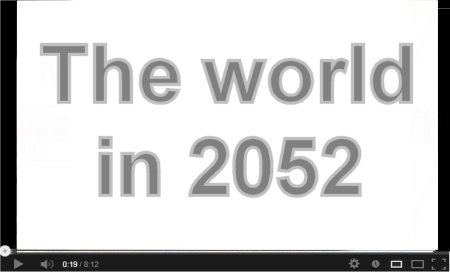|
|
Industry 4.0 -Part 1

Is this already the next industrial revolution, where the farmer stands in his field watching a seemingly driverless tractor do the work or when a 3D-printer that you have in your cellar, manufactures the product that you've just
downloaded, with which, in the evening, you can repair some faulty device that you have?
Certainly not, because interlinking is almost imperative for Industry 4.0, and as a rule, e.g., telecommunication is integrated. The automation of manufacturing processes is quite clearly a part of the Stage 3. However, and
this is very important, countries, which haven't advanced enough, could partly skip over these stages and catch up to the peak of technology.
The fact that production machinery does not endlessly produce sub-standard products but stops automatically after the first faulty article, have been around for some time now. Indeed, that they correct the fault themselves,
examine the raw material and pass on the newly gained knowledge about necessary alterations to the next machine, is still relatively new.
After all, if the refrigerator in super-modern accommodation can order albeit, a modest selection of groceries from the suppliers all by itself, then it must also be possible for a production machine to do this outside the
confines of the factory. Since the suppliers have already been, in some cases, brought close to the vicinity of the factories.
Just as the need for-, and the delivery of torque to the entire vehicle are available as standardised values, is how e.g., the ordering of a machine should be globally understood, regardless of who the supplier is. By the way,
Industry 4.0 first of all, means a painful investment with no security for the suppliers, they can't know whether the investment will pay off or not. They very often work on a very different calculation basis than do the big
manufacturers.
I wonder if in the future, there will be human-to-machine or more than likely, machine-to-human communication? In the automobile industry, the finished car is already saved on a chip, before it is built. Virtually all it has to
do, is to fetch the parts, one after the other, for its completion. Actually the finished product is already there, when the order is placed. Indeed, the manufacturing according to a binding order, like e.g., book-printing on
demand, is simply a garbage-avoiding by-product of Industry 4.0.
If however, as it already is today, the in-house suppliers to the actual manufacturer, deliver e.g., the seating unit to the production line exactly on time, but the doors, after the spray painting, have to be finished separately in
an adjacent building, then one may no longer be able to distinguish between the workers from outside suppliers and ones own staff. This also raises the question of who's responsible for any possible mistakes.
So, the order now exists in a so-called 'Cloud'. Will it be sufficient to be able to call up the order using a password? And what about if the order, on its way in or out, has to be simply looked at or even altered? The damage
caused to the manufacturer could be heavy. To summarise the subject, from now on we'll speak of networking and the self-organising factory. 11/14
"
|
|